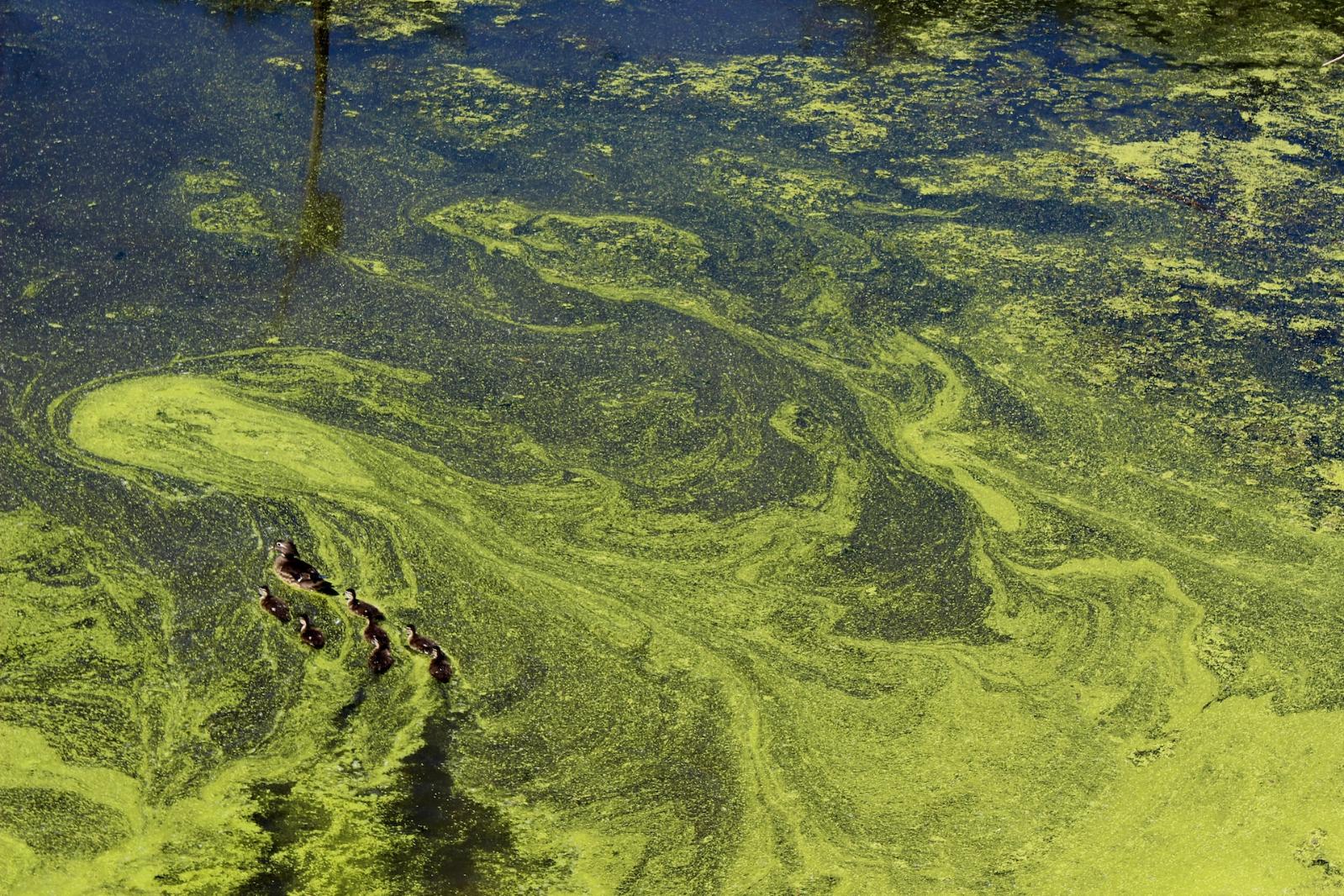QUB research at the cutting edge of tackling blue green algae in Lough Neagh
There has been significant public and media interest in the ‘perfect storm’ that has led to Lough Neagh experiencing one of its worst seasons ever for blue green algae blooms.

Wastewater, agricultural run-off, extreme weather conditions, climate change and invasive freshwater mussels are all known to play a part in the development of algal blooms, some of which release toxic substances into our waterways.
However, there are still a lot of unanswered questions around how the ecosystem can be managed to prevent such recurrences in the future. Researchers at Queen’s University Belfast's School of Biological Sciences and Institute for Global Food Security (IGFS) work across several scientific disciplines and are actively engaged in research to provide answers to some of these questions.
Director of IGFS, Professor Nigel Scollan, explains, “The situation in Lough Neagh is a complex one and there are many elements that need to be addressed at the same time. Algal blooms have been seen in Lough Neagh for thirty or forty years but it’s important that we break down the problem and identify solutions to each of those individual elements, using all the tools we have available to us. The One Health concept recognises the interactions between people, animals, plants, and their shared environment – in this case, we are drawing on expertise across a range of scientific disciplines and collaborating to co-create solutions that can delivers results that will directly benefit the state of the Lough.”
Professor Katrina Campbell is developing rapid diagnostic tests to detect blue green algae (cyanobacteria) and their toxins in the environment. Professor Lisa Connolly is collaborating with colleagues at the QUB Institute for Electronics, Communication & Information Technology (ECIT) on a pilot project, involving Northern Ireland Water, to develop a monitoring and alert system to ensure the safety of drinking water. Professor Chris Elliott OBE, a world-renowned expert in the development of food safety tests, has been working on an elegant method for the detection of a range of cyanobacteria toxins using mass spectrometry.
Meanwhile, Professor Neil Reid and Professor Mark Emmerson, both ecologists, have been collecting and storing a catalogue of targeted water samples from throughout the Lough for analysis, using a food web approach to understand changes in the aquatic ecosystem. Dr Deepak Kumaresan is developing a better understanding of the influx of phosphorus into lakes and the effect on aquatic microbes, including cyanobacteria. Professor John McGrath is using DNA sequencing technologies to identify the mixture of algal components as well as other potential pathogens in the floating ‘blooms’. Dr Sarah Helyar is interested in the part that the invasive zebra mussel plays in the development of algal blooms in our freshwater rivers and lakes.
According to Professor Scollan, collaboration is key, “Our scientists are world leaders in their respective fields but by targeting the application of their knowledge and skills, and then communicating it to colleagues, we can plug the knowledge gaps and develop solutions to improve the health of the Lough. Our collaborations also extend to colleagues at the Agri-Food & Biosciences Institute (AFBI), as well as within DAERA, FSA, NIEA and elsewhere.”
“Funding of research is key to build knowledge but it’s imperative that the public and private sectors also invest in innovation to ensure that we can deliver cost-effective solutions to the complex challenges we face - now and in the future - to improve the wellbeing of people, animals, plants and their shared environment.”
Media
For further information please contact Communications Officer Sian Devlin on s.devlin@qub.ac.uk
